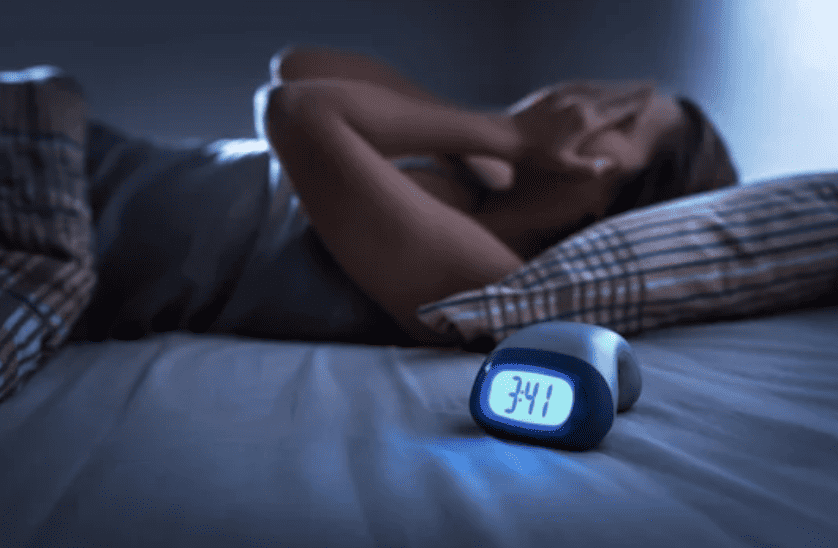
- Do not stay in bed if it has been 30 minutes and you still can’t sleep. Get up, go into the living room (or wherever else) and read. Try not to watch TV as the brightness and flashing stimulates your amygdala, furthering your inability to sleep, in addition to contributing to glutamate release, which is an excitatory neurotransmitter.
- Make sure your room is super dark. Get the black out drapes you find in hotel rooms. Put curtains over them to cover any remaining lights coming in. Cover your alarm clock and any other LED lights that are lighting up the room. Accordingly, in the morning open all the drapes and give yourself a few minutes to just sit and absorb all the light. This will give you the proper stimulation to help wake you up.
- If noise is a problem (which is usually the case for people living in NYC or other cities), try a noise machine. SleepMate is a good one and Brookstone makes a good one as well. Designs to Go Quiet Zone ear plugs are also good for this problem.
- Particularly if your circadian rhythm is off (i.e. if you work nights or travel a lot), melatonin can be very beneficial. 1-3 mg of the sublingual kind is usually what I recommend depending on the person and the issue.
- Start dimming the lights from early evening. This will help get you into more of a relaxed and less of stimulated state before bedtime. Again, this will also inhibit glutamate release and help you slow down your mind.
- Establish some sort of ritual for going to sleep at least one hour before getting in bed. This could include taking a bath (adding some drops of lavender will help relax you), having a cup of chamomile tea, writing down anything that may go through your mind about the next day while trying to sleep (i.e. things that need to be taken care of), journaling (i.e. writing about any feelings, thoughts, experiences, ideas that have not been verbally processed).
- Try not to eat for 3 hours before going to bed. Otherwise your body is working at digesting foods instead of contributing to your overall efforts to relax. In general, if you’ve ever heard of the saying “eat breakfast like a king, lunch like a prince, and dinner like a pauper,” it is right on. You don’t have to be rigid about this. Just keep it in the back of your mind and try to maximize your food intake earlier in the day and minimize it at night. In the earlier part of the day, your body is generally moving around more (hopefully) and working at digesting your foods. You want this to be emphasized earlier in the day rather than while you are trying to sleep. In Europe and the Mediterranean, this is generally how people eat and I am in total agreement with it.
- Avoid eating foods that contain tyramine from the afternoon onwards such as: cheese, bacon, chocolate (which also has caffeine), ham potatoes, tomatoes, and sausage to name a few. Tyramine is an excitatory amino acid that could disturb your sleep. Instead, focus on eating the bulk of your carbohydrates in the evening, including tryptophan containing foods.
- According to Ayurvedic philosophy, you should stay away from dairy at night, especially if you are prone to congestion, due to dairy’s effects on mucous production (which could lead to congestion and related issues).
- Try not to ruminate about not sleeping. When you have catastrophic thoughts about not sleeping and how it could affect your next day, challenge your thoughts by remembering times in which you were fine the day after a not-so-great night of sleep. This is one aspect of Cognitive Behavioral Therapy for insomnia, which is a very powerful treatment for insomnia.
- If you suspect that you may have a sleep disorder (other than insomnia), such as a sleep breathing disorder like sleep apnea or upper airway resistance syndrome (a more benign form of sleep apnea), schedule an appointment with a sleep doctor. If this turns out to be a problem for you, you may benefit from an oral appliance or in some cases CPAP therapy. A good book on this subject matter is called Sleep Interrupted, by Steven Park, MD.
- Besides the lighting in your bedroom, make sure it is conducive to sleep in other ways to make the ambiance soothing. Your bedroom should be a peaceful cocoon; a sanctuary for respite. To this end, limit any clutter in your room, don’t keep anything stimulating (i.e. computers or things that remind you about work) in there. Keep your pets away from your bedroom too – every time your pet moves, it could be shifting you from delta (deep) sleep back into a lighter stage of sleep. Accordingly, if your partner moves a lot, you may consider purchasing two twin mattresses and putting them in a king bed frame. Don’t fret! This will not make much of a difference, especially if you still use all king size bedding. It will simply limit you from feeling the vibrations of your mate moving around and thus disrupting your sleep, even if subtly, several times each night. Color your bedroom in light colors such as light blue, green, or white.
- According to Feng Shui principles, too many mirrors in your room can increase energy in the room, thereby adding to insomnia – especially mirrors directly across from your bed or those placed in areas where you can see yourself from the bed. Also according to Feng Shui, it is best to place the bed in a position of the bedroom which faces the door.
- Make sure you get some physical activity every day. Moving around and exerting yourself, even if it is just taking a brisk walk every day, improves neurochemical functioning. Do not exercise within 5 hours of bedtime.
- If you suspect that you are grinding or clenching your teeth, see a TMJ specialist. There are many appliances that can help with this – the biggest sign would be a clicking or popping sound when you open your mouth and jaw pain. If you do clench your teeth, this could cause headaches. Besides oral appliances, there are some good ways to work on this, one of which includes Cognitive Behavioral Therapy.
- Remove anything with an electromagnetic field (EMF) from a few feet within your sleeping space. Some people have received tremendous benefit just from doing this – it has even been helpful for people who complain of waking up with headaches.
- Establish a breathing practice and body scan when you get in bed. Start with deep diaphragmatic breathing and begin a body scan from the tips of your toes to the top of your head. Bring awareness to each area, release each part separately one at a time, while visualizing yourself melting into the mattress with each exhale. Deepen your breathing practice by learning pranayama.
- Get your hormone levels (including cortisol) checked. Hormones can play a big role in sleep. For example, a progesterone deficiency can cause or exacerbate insomnia greatly.
- Last but not least, if you find yourself having recurring thoughts, feelings, or dreams that come up for you at night, talk about it. It is important to explore both the conscious and unconscious aspects that may be playing a role.
- Dr. Dardashti’s new manual (based on her professional training workshop) is now available on Amazon. Find out what the underlying physiological contributors could be to your mental health symptoms and take charge of your life. Read more here: http://goo.gl/R4kjUY





